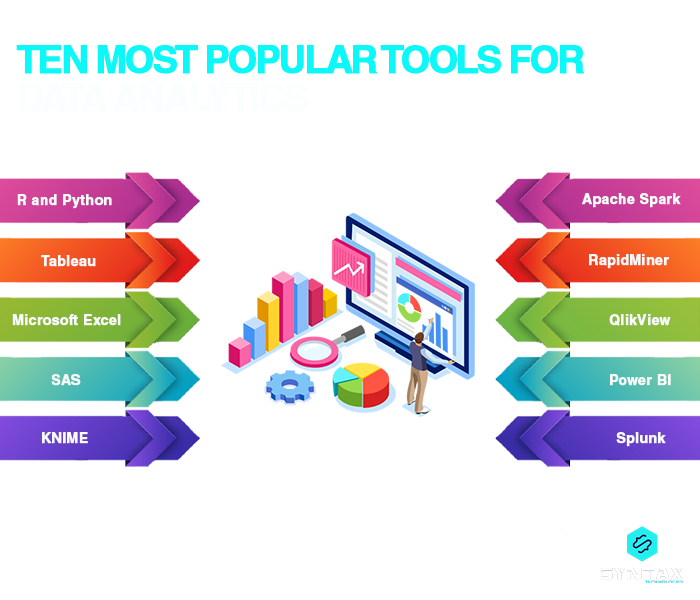Empower Your Team with Actionable Insights from Analytics
Empower Your Team with Actionable Insights from Analytics
Blog Article
Maximize Growth: How Analytics Drive Better Methods
By taking advantage of data insights, services can refine their operational approaches, expect market adjustments, and boost consumer engagement. The obstacle lies not just in accumulating data but in successfully interpreting it to drive tangible results.
Comprehending Information Analytics
Information analytics is an organized computational analysis of data that enables organizations to reveal significant patterns and insights. This process includes a selection of methods, consisting of statistical evaluation, anticipating modeling, and information mining, which collectively aim to change raw data into actionable info - Analytics. By utilizing these approaches, organizations can make enlightened decisions that are rooted in empirical proof instead of intuition alone
The structure of data analytics hinges on its ability to take care of huge amounts of information from varied resources. This includes structured data, such as data sources, and unstructured data, consisting of social media communications and customer responses. With the usage of specialized software program and tools, experts can remove and refine this information successfully, determining trends and connections that might not be instantly obvious.
Understanding data analytics likewise entails identifying the significance of information high quality and stability. Accurate and reputable information is crucial for significant evaluation; hence, companies should execute robust information governance techniques. Additionally, the repetitive nature of analytics permits continuous improvement and renovation of approaches, ensuring that organizations continue to be active in the face of transforming market characteristics and consumer habits.
Key Advantages of Analytics

One of the crucial advantages of analytics is its capacity to provide workable insights. Organizations can promptly analyze substantial amounts of information, revealing patterns that might not be immediately obvious. This assists in anticipating market changes and adjusting methods as necessary. In addition, analytics promotes a society of evidence-based decision-making, lowering dependence on instinct and uncertainty.
An additional substantial advantage is improved customer understanding. Analytics devices enable companies to segment their audience, track customer behavior, and customize advertising initiatives. This targeted technique not just improves client interaction yet additionally drives greater conversion prices.

Implementing Analytics Strategies
To totally realize the benefits of analytics, organizations have to embrace structured techniques for implementation. This starts with clearly specifying objectives that line up with broader business objectives. By establishing certain, quantifiable outcomes, organizations can focus their analytics initiatives on areas that generate the highest possible roi.
Following, organizations need to prioritize site information administration to ensure the integrity and security of the data being examined. This entails establishing protocols for information collection, storage, and accessibility while sticking to relevant policies. Making sure high-grade data is vital for creating meaningful insights.
Additionally, fostering a society of data-driven decision-making is crucial. This calls for training employees to interpret analytics findings and motivating collaboration across departments. When teams understand the value of analytics, they are extra likely to integrate understandings into their everyday operations.
Finally, organizations must consistently assess and improve their analytics strategies. The landscape of data and technology is continually evolving, and remaining versatile will certainly enable organizations to leverage new devices and techniques successfully. By executing these structured strategies, companies can maximize the impact of their analytics initiatives and drive lasting development.
Tools for Reliable Evaluation
Effective evaluation depends on a range of tools that promote the extraction of insights from information - Analytics. These devices can vary from simple spread sheet applications to innovative maker discovering platforms, each offering a distinct purpose in the analytical procedure
Data visualization software program, such as Tableau and Power BI, plays a vital role in changing complicated datasets right into understandable visual depictions. These tools allow experts to determine patterns and fads rapidly, permitting even more enlightened decision-making.
Statistical analysis software program, like R and SAS, offers innovative capabilities for carrying out comprehensive evaluations, including regression, theory screening, and predictive modeling - Analytics. These features equip companies to attract meaningful final thoughts from their information, recognizing prospective chances and threats
Furthermore, database administration systems such as SQL and NoSQL data sources supply the needed framework for saving and querying large quantities of data successfully. They ensure that data is organized and available for analysis.
Finally, service knowledge systems incorporate numerous information sources, supplying a detailed sight of organizational performance. By utilizing these devices properly, businesses can enhance their analytical capabilities, enabling them to establish methods that take full advantage of growth and enhance general performance.
Study of Success
Effective organizations commonly utilize information analytics to drive impactful approaches, as shown by a number of significant situation research studies. One famous example is Netflix, which utilizes innovative formulas to examine visitor choices and habits. By employing these understandings, Netflix has actually effectively tailored its material referrals, leading to increased customer interaction and customer retention. Their data-driven technique has certainly added to their condition as a leading streaming service.

In addition, Starbucks employs information analytics to determine ideal shop areas and refine its product offerings. By examining client demographics and acquiring patterns, Starbucks successfully identifies high-potential markets and tailors its menu to regional preferences, driving sales and customer commitment.
These study show that reliable application of data analytics can cause calculated benefits, cultivating technology and development within organizations across different markets.
Final Thought
In final thought, the integration of analytics right into organizational techniques significantly boosts decision-making procedures and promotes sustainable development. The efficient implementation of analytics devices additionally supports dexterity and advancement, allowing companies to navigate competitive landscapes with better precision.
Data analytics is a methodical computational analysis of information that enables companies to discover purposeful patterns and insights.Recognizing data analytics additionally includes recognizing the importance of information quality and stability. Trustworthy and accurate information is essential for purposeful analysis; therefore, organizations need to useful link implement durable information governance techniques.Next, organizations need to prioritize information administration to guarantee the honesty and safety and security of the information being assessed.Successful companies frequently utilize information analytics to drive impactful techniques, as confirmed by numerous noteworthy case studies.
Report this page